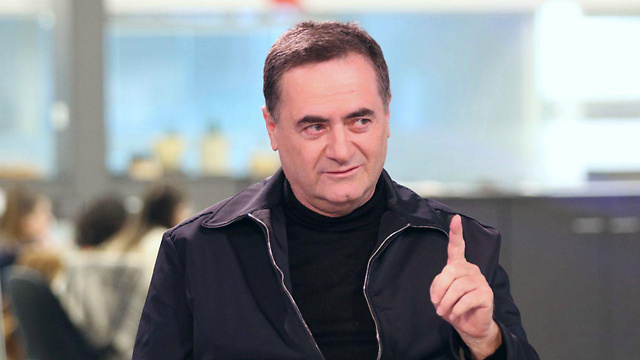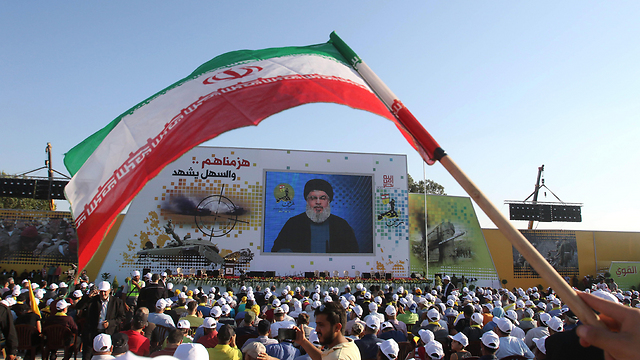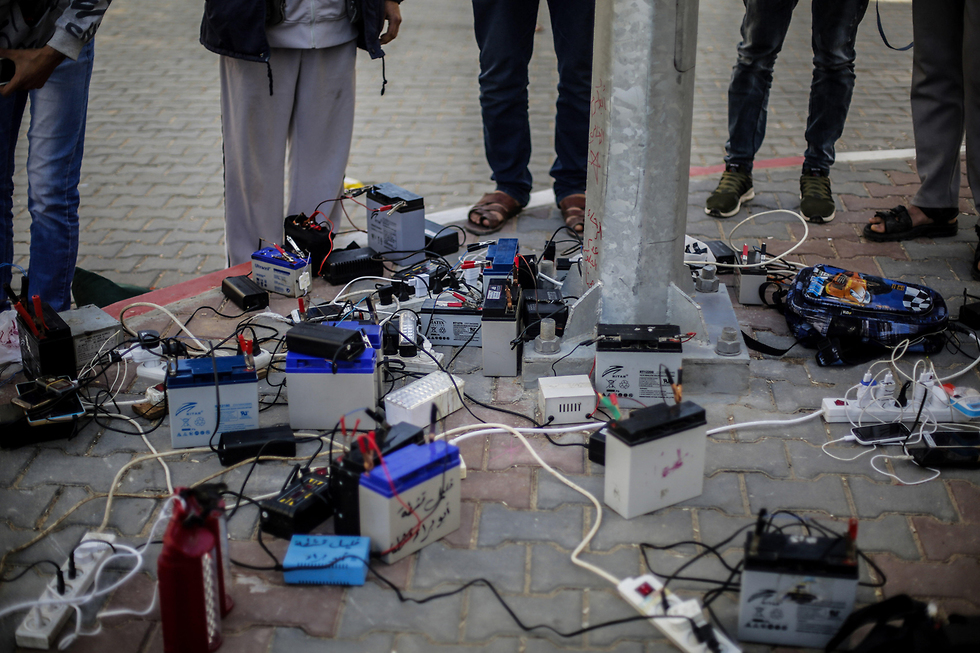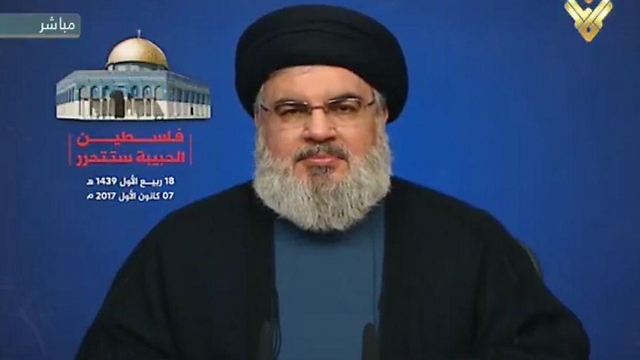
Lebanon will be blown back to the ‘Stone Age,’ Minister Katz warns
Echoing messages conveyed to Iran and Hezbollah by the prime minister and IDF spokesperson, the transportation minister tells Ynet that ‘Israel has set a red line—it won’t allow Lebanon to become a factory for the production of precision-guided missiles for Iran’; Education Minister Bennett clarifies: ‘If missiles are fired from Lebanon, Nasrallah will become Lebanon’s destroyer.’
Echoing warnings issued by Prime Minister Benjamin Netanyahu and IDF Spokesperson Ronen Manelis as to the growing Iranian involvement in Lebanon and the missile factories being built by the Iranians in the country, Katz clarified in an interview to the Ynet studio that “Israel has set a red line—it won’t allow Lebanon to become a factory for the production of precision-guided missiles for Iran.
“We have worked to prevent this from happening in Syria through Iranian weapon smuggling, and we are now making it clear that we won’t allow Iran to build factories for the production of precision-guided missiles or for the conversion of missiles on Lebanese soil. This has been clarified in talks with Russia too, and certainly with the United States and other European countries, as messages aimed at preventing a war and a conflict we have no interest in. We are making our red line clear,” said Katz, a member of Israel’s Political-Security Cabinet.
Asked whether Lebanon and the region’s other countries had the ability to meet Israel’s red lines, Katz replied: “Iran is working to turn Lebanon into an advanced post against Israel and has basically taken Lebanon hostage through Hezbollah by implementing its aggressive trends. On the other side, we have Israel with its abilities—and our abilities must be clear to prevent it.
“We are being very clear. If an open, comprehensive conflict develops as a result of Hezbollah’s aggression, we will act very firmly, much more than we did in 2006. Not a single target in Lebanon will be immune, and any infrastructure used both by Hezbollah and for military purposes will be hit. Lebanon will go back many, many years, some say to the Stone Age and others say to the age of cavemen.”
Asked whether Israel had any intelligence on an Iranian desire to launch a war, Katz replied: “We are receiving intelligence that Iran is working to make the front more dangerous. It’s trying to both entrench itself in Syria and arm Lebanon with accurate missiles.”
Moving on to the humanitarian situation in Gaza, which he referred to as “grave,” Katz said: “There are some 2 million people there, and the conflict between Abu Mazen (Palestinian President Mahmoud Abbas) and Hamas is definitely making the situation worse. We can say that it’s not our businesses, but the reality is that Israel is responsible for what is happening in Gaza because of the siege. I have been suggesting a strategic separation move for a long time now—to build an island, a seaport and international facilities for water desalination and electricity. Not to reward Hamas, but reward Israel, to isolate it and free it from its responsibility.
“We are already paying the price,” Katz argued. “The defense establishment is largely dealing with ways to prevent the sewer flooding, water salinization, prevention of hunger and diseases. My suggestion allows us to lift the siege in a security-controlled manner while maintaining security, to give Gaza an economic connection to the world, to free ourselves from our responsibility for the situation there and hand it over to the world.”
Katz said he was unable to confirm the New York Times report that Israel had attacked Islamic State targets in Sinai more than 100 times to assist Egypt in its battle against the jihadist organization, but stated that “in general, Israel and Egypt share a deep interest to prevent an ISIS entrenchment in Sinai. We must understand that after being defeated in Iraq and Syria, ISIS began flowing into Sinai, and it has Israel—and definitely Egypt—in its sights too.
“Naturally, there is intelligence cooperation and there will likely be other forms of cooperation to target ISIS and prevent it from making good on its threats,” Katz added. “We must also remember that ISIS attacked Eilat and the Negev. Israel definitely sees it as a threat it has to deal with alongside the Iranian threat from the north and from Gaza.”
‘Israel won’t wait for the enemy to reach the fence’
Education Minister Naftali Bennett, another member of the Political-Security Cabinet,” also addressed the growing tensions with Lebanon in an interview at the Ynet studio.
“I think that was isn’t a necessary and inevitable thing,” he said. “It depends on both sides, but on us too. The clearer we are in our words and actions, clarifying that we won’t allow threats on our borders, we will be able to prevent the third Lebanon war.
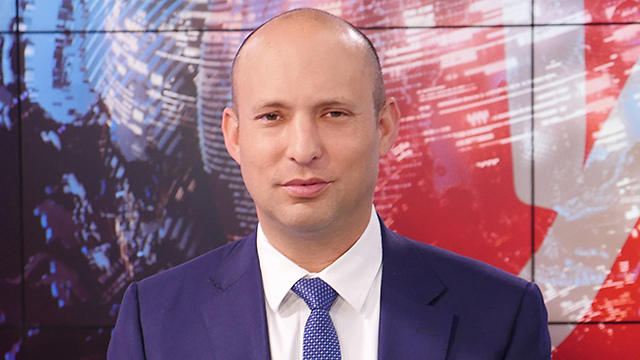
Asked who is expected to stop a war from breaking out, Bennett replied: “We only trust ourselves. At the moment, there’s a developing threat, the missile precision project in Hezbollah’s state of Lebanon, and we won’t let it happen. I must explain that the potential damage of tens of thousands of precision-guided missiles, God forbid, isn’t far and isn’t fundamentally different from the potential damage of a nuclear bomb. And just like we wouldn’t let Hezbollah acquire a nuclear bomb, we can’t let them acquire tens of thousands of accurate missiles that will hit us tomorrow.
“After the Second Lebanon War, (Hezbollah Secretary-General Hassan) Nasrallah said that had he known how Israel would respond, he wouldn’t have kidnapped the soldiers. So we’re doing Nasrallah a favor and making it very clear that if a war develops, God forbid, and missiles are fired on us from Lebanon, Nasrallah will become Lebanon’s destroyer and the southern part of the country will sustain a critical blow because of his actions. There, we’re saying it.”
As for the report that Israel was assisting Egypt in its war against ISIS, Bennett said: “I have no intention of confirming or denying the reports. Let me just say this: The State of Israel won’t wait for its enemy to reach the fence. We are working against our enemies far away from the fence, so that the threat won’t reach our door. We are not prevented and are not restricting ourselves from operating anywhere, and the terrorists targeting Israel are at risk anywhere around the globe.”
Addressing the battle between religious-Zionist rabbis and the chief of staff over women’s service in the IDF and Rabbi Shmuel Eliyahu’s declaration that “war is brewing,” Bennett insisted that “there is no war with the IDF, absolutely not. The IDF is us, and we are the IDF. The overwhelming majority of the Religious Zionism movement is part of the IDF and serves in the IDF. There is some criticism. There are ways to voice criticism, and it’s perfectly fine, but we must always respect the IDF and respect the rabbis too.”















